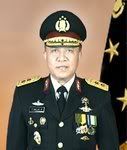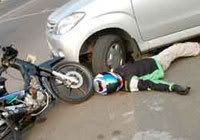ABRI - Armed Forces of the Republic of Indonesia
Indonesia's four armed services, collectively termed the Armed Forces of the Republic of Indonesia [ABRI - Angkatan Bersenjata Republik Indonesia], consist of the three military services--the army, navy, and air force--and the police. The effort to forge a united and coherent nation that could accommodate the natural diversity of peoples in the Indonesian archipelago has always been a central theme in the country's history. ABRI plays a role in national society that is perhaps unique in the world. The military establishment in the early 1990s was involved in many affairs of state that elsewhere were not normally associated with military forces and acknowledged as the dominant political institution in the country. The armed forces establishment, led by the dominant branch, the army, has been the country's premier institution since 1966 when, in its own view, it answered the summons of the people and moved to the center stage of national life. Comprising the three military services and the police, the armed forces operated according to dwifungsi, or dual function, a doctrine of their own evolution, under which they undertook a double role as both defenders of the nation and as a social-political force in national development.
To fully understand the role of the armed forces in contemporary Indonesian society, one must understand the absolute priority the government and the military leadership has placed, from the beginning of the New Order, on the importance of internal security to the achievement of national stability. The New Order government, whose military leaders played an important role in 1965 in crushing what was officially described as a communist coup attempt, believed that threats to internal stability were the greatest threats to national security. Having experienced two attempted coups, supposedly communist-inspired, a number of regional separatist struggles, and instability created by radical religious movements, the government had little tolerance for public disorder.
Since the beginning of Suharto's rise to power in 1965, the armed forces accepted and supported the foundation of his regime, namely, the belief that economic and social development was the nation's first priority and that social and political stability was absolutely essential if that goal were to be achieved. The primary mission of the armed forces has therefore been to maintain internal stability. The maintenance of internal security was considered an integral part of national defense itself. Indonesian doctrine considers national defense within the broader context of "national resilience," a concept that stresses the importance of the ideological, political, economic, social, and military strength of the nation. Like dwifungsi, this concept has also legitimized activities of the armed forces in areas not ordinarily considered belonging to the military sphere.
The role of the separate armed services has not changed since 1969, when the heads of the army, navy, and air force were reduced to chiefs of staff. Operational control of almost all their military units was vested in the commander in chief, reducing the headquarters of each military service to the status of administrative organs. Only the police chief continued to exercise operational control over his own personnel.
Communist victories in South Vietnam and Cambodia prompted national authorities to reconsider both the external threat the nation faced and how best to meet it. Consequently, the new minister of defense and security, General Mohammad Jusuf, directed a major upgrading of armed forces military capabilities. This upgrade included increased training and procurement of sufficient equipment and personnel to establish a core of some 100 fully ready combat battalions. Under Jusuf, the armed forces initiated extensive retraining and reorganization programs that culminated in a major reorganization of the armed forces in 1985.
Largely retained intact when split off from HANKAM in 1985, the ABRI staff and its functions remained directly subordinate to the commander in chief, who remained, in turn, directly responsible to the president, also the supreme commander of the armed forces. Under the commander in chief, there was a provision for a deputy, a position that in 1992 was not filled. There were two ABRI chiefs of staff, one for the general staff and one for social-political affairs. The inspector general and the assistant for plans and budget, as well as a number of agencies and institutes, remained directly under the commander in chief. The ABRI chief of general staff directed assistants for communications/electronics, intelligence, logistics, operations, personnel, public security affairs, and territorial affairs, the chief of staff for social-political affairs directed the armed forces' dwifungsi operations in the civilian sector of the government through assistants for nonmilitary workers' affairs and for social-political affairs. The ABRI joint staff supported the headquarters of each of the four services. Staff personnel were drawn from all four services. Police officers served only in positions related to internal security.









good job ! good works ...